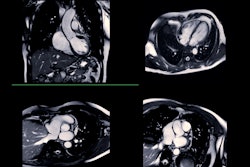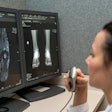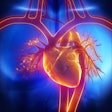More in Home
Thyroid medication linked to bone loss
November 25, 2024
Does AI contribute to burnout for radiologists?
November 22, 2024
Elastography shows tissue stiffness in athletes with low-back pain
November 22, 2024
LLMs decrease in accuracy over time on radiology exams
November 21, 2024
Functional MRI illuminates what motivates e-cigarette use
November 21, 2024
Student-led initiative working to close gender gap in radiology
November 20, 2024
Medicare finalizes 2025 Fee Schedule cut
November 20, 2024
Share of nonphysician practitioners' imaging interpretation doubles
November 20, 2024
Nomogram model predicts malignancy risk in ovarian masses
November 19, 2024
PET links chronic stress to aggressive endometrial cancer
November 19, 2024























